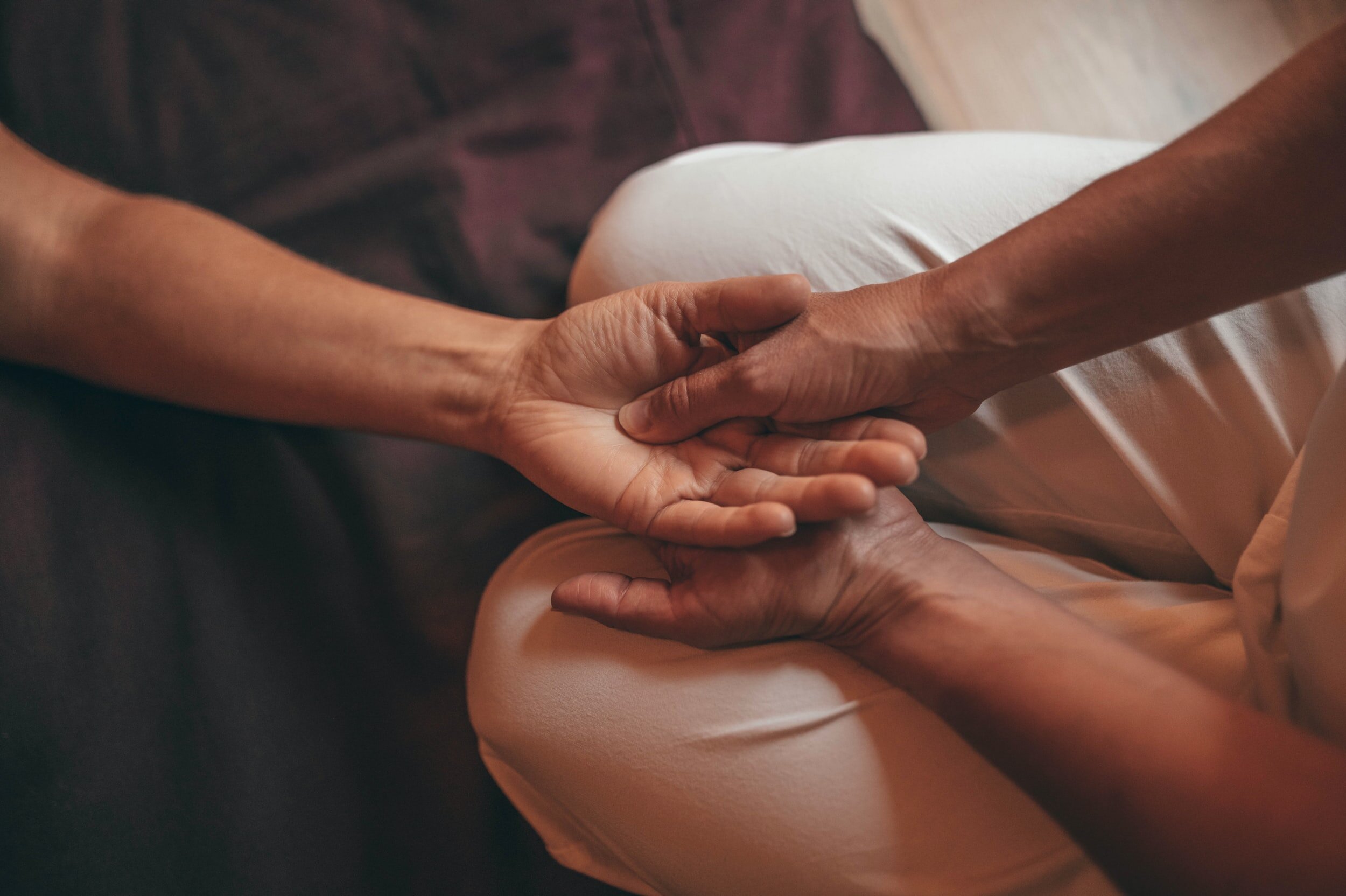Blog
Restorative Lifestyle Blog
Learnings, teachings and tips & tricks for anyone to reference during difficult times, stressful workdays and moments when you need to come home to yourself.
5 Ayurvedic travel tips: how to stay healthy on the road
Whether you’re ready to jump on a plane and escape to a green zone country or discovering nearby peaks and valleys via back roads this summer, the cautious return of travel means the return of its sidekick - disturbed circadian rhythms.
Summer S.O.S: Ayurvedic recommendations for Pitta season
It’s no secret that your body’s inner clock (circadian rhythm) is affected by the seasons, which bring changes in food availability, sun exposure and amount of precipitation, all of which influence your health and sense of wellbeing.
Ayurvedic diet: how to schedule your meals to aid digestion
We’ve all heard the adage that you are what you eat, but according to yoga’s holistic sister science Ayurveda, it’s not just the contents of your fridge that determine your sense of wellbeing. According to Ayurvedic science, your health depends largely on how well you digest your food, and it turns out that when you eat plays an important role in the functioning of your digestion.
What is your mental/emotional “type,” according to Ayurveda?
Together, yoga and its sister science Ayurveda help you refine your awareness so you can recognize when you’re locked into a mental pattern that’s self-limiting or even self-destructive, and offer you new, healthier patterns as a replacement.
Ayurveda and Marma therapy: how to add depth to your yoga practice
Though marma therapy is a specialized area of massage and reflexology, understanding how yoga poses may influence certain marma points may also add new depth to your practice.
Health Hack: Transform Your Life with the 4 Pillars of Health
We’ve all experienced that pivotal moment when you realise your life needs a total overhaul - maybe you’re exhausted after a full night’s sleep, running on a short fuse and snapping at everyone and everything, or suffering from digestive distress on the daily. But sensing you need a change can feel like a million miles from knowing where to begin. Should you try a new diet? Wake up earlier? Hit the gym? Or take up meditation? The truth, according to many experts, is all four.
Boost Your Immunity this Spring with these Ayurveda Self-Care Tips
Springtime brings a second peak for colds, with erratic temperatures irritating your airwaves and seasonal allergies making many of us more prone to infections. But you don’t have to fall victim to this seasonal assault. Yoga’s holistic sister science, Ayurveda, has long identified spring as a peak time of susceptibility to illness, but it also suggests some simple changes to your lifestyle so that you can bolster your physiology against unwelcome visitors this season.
The Mysterious Health Benefits of Ghee and Why You Should Try It
Ghee is purified butter and is used commonly in India. While in the West we’ve had a complicated relationship with fat and butter over the past 30 years resulting in that odd stepchild, margarine, that no one likes to mention, its benefits have been extolled by Ayurveda since time immemorial. The Charaka Samhita, a centuries-old Ayurvedic text, says, “Out of all the oils fit for human consumption, ghee is the best to eat.”
5 Tips from Ayurveda to Ignite your Morning Routine
Spring, known as Kapha Season in Ayurveda, can cause physical and energetic heaviness and sluggishness as we fight to shed our necessary winter coat. Now is the time to take advantage of the earth’s tilt, awaken earlier, move more and start to shed some layers!
What is Abhyanga? How Ayurveda’s Daily Massage Routine Can Help Slow Aging
Your skin is the biggest organ in your body, so it’s common sense to want to keep it healthy and practices to promote radiant skin span many centuries and cultures. Ayurveda, a system of holistic Indian medicine, identifies dryness as one of the main disease pathways and the primary contributor to aging and degeneration. Many conditions from chronic constipation to osteoarthritis and even neurological disorders are seen in Ayurveda to have their roots in chronic loss of lubrication throughout the physiology. Dryness is a natural side-effect of aging, but it can be accelerated or stymied through lifestyle choices.
Winter Wellness: 5 Ayurveda Tips to Stay Healthy and Happy
It’s no secret that the body’s inner clock is affected by the rhythms of the year, with changes in food availability, sun exposure and even amount of precipitation all weighing in on your health and wellbeing. Yoga’s sister science Ayurveda has recognized the influence of seasonality for thousands of years, and in response offers up Ritucharya, seasonal routines, to keep you balanced and healthy twelve months a year!
How Your Diet Holds the Key to a Glowing Complexion, from Yoga's Sister Science Ayurveda
Archaeologists have found evidence of early cosmetic regimes practiced by Egyptians dating back six thousand years, and the Roman Philosopher Pliney the Elder extolled the benefits of almond oil to fight wrinkles in his first century text Natural History.
3 Tips for Harnessing the Power of Your Circadian Rhythm for Health, Wellbeing & Productivity
Discovered around 1970, the mechanism of your internal “clock” is called the Circadian Rhythm. It keeps your body functioning on a 24-hour schedule when photoreceptors in the retina of your eyes communicate the brightness of your surroundings to your brain. Your brain then dictates an ongoing cycle of physiological changes in your cells; for example, your blood pressure is usually highest around 6:30 p.m. and your body temperature is lowest around 4 a.m.
Start your journey
Choose the offering that’s best for you.













